Search Results
Showing results 1081 to 1100 of 2051

Safe in the Sun
Source Institutions
In this activity on page 13 of the PDF, use a special plastic card that has been painted with a chemical that changes color when it is in UV light.

Saguaro Nest Cavities
Source Institutions
This activity (on page 3 of the PDF under GPS: Cactus Activity) is a full inquiry investigation into how some desert birds keep their cool.
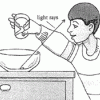
Make Money Appear Before Your Eyes
Source Institutions
In this optics activity, learners use water to make a coin "appear" and "disappear." Use this activity to demonstrate how light refracts and introduce light as waves.

Flip
Source Institutions
In this amazingly simple physics activity (page 5 of the PDF), learners will explore how exerting a force on an object can give it kinetic energy and momentum.
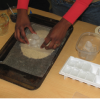
Ice on Mars
Source Institutions
In this activity, learners use sand and ice cubes to create a model of permafrost and the effects of the ice melting through the surface.

Milli's Insulation Investigation
Source Institutions
In this activity on page 2 of the PDF, learners test different materials to find out which is the best insulator.
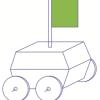
Sail Car Design
Source Institutions
This activity (on page 3 of the PDF under GPS: Sailboat Design Activity) is a full inquiry investigation into design optimization.

Paint a Fresco
Source Institutions
In this activity on page 7 of the PDF, learners experiment with the interesting designs that can be made by painting on plaster.
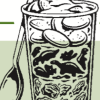
Layered Fossil Parfait: Deeper is Older
Source Institutions
In this activity, learners explore dinosaur fossils by making an edible treat. First, learners read "Dinosaur Bones" by Aliki to examine how fossils are formed.

Invent on the Spot
Source Institutions
In this activity, learners design a device to solve a problem: how to get a ball out of a drain pipe.
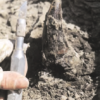
Compare Dinosaur Body Parts
Source Institutions
In this activity, learners explore the size and scale of dinosaurs. Learners listen to "The Littlest Dinosaurs" by Bernard Most to learn about the different sizes of dinosaurs.
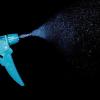
The Search for Secret Agents
Learners tour their school or home looking for sources of indoor air pollutants (IAPs).

Double Replacement Micro-Reactions
Source Institutions
In this chemistry activity, learners use common chemicals to examine reactions that occur between two aqueous solutions.

Algebra: Aw Chute!
Source Institutions
In this math lesson, learners determine and compare the rate of descent of various learner-constructed parachutes. Learners construct parachutes that will have maximum hang times.

Exploring Magnetic Field Lines
Source Institutions
In this activity, learners explore the magnetic field of a bar magnet as an introduction to understanding Earth's magnetic field. First, learners explore and play with magnets and compasses.

From the Ground Up
Source Institutions
In this plant science activity, learners conduct four experiments to observe how plants respond to sunlight and gravity.

Potion Commotion
Source Institutions
In this hands-on science experiment, students combine their understanding of the different states of matter and the characteristics of various chemical reactions.

Operation Espionage
Source Institutions
In this activity, learners create and reveal secret messages written with invisible ink! The invisible ink is actually a baking soda solution, and the magical revealing liquid is fruit juice.
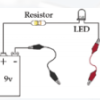
Exploring Materials: Graphene
Source Institutions
In this activity on page 4 of the PDF, explore the unique molecular structure and conductive nature of graphene. Learners construct a circuit with a battery and LED bulb.

Homework, Hogwarts Style
Source Institutions
In this activity on page 8 of the PDF (Behind the Scenes with Chemistry), learners make three of Harry Potter's essential school supplies: quills, ink, and color-changing paper.
